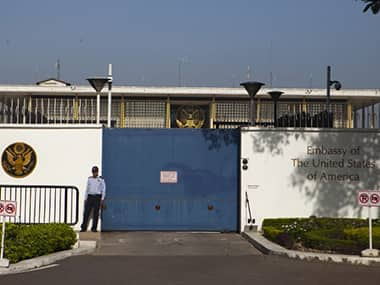By Sharmila Kantha Much has been written in recent days about the ‘elite’ Indian diplomat and how she cannot manage without domestic help to cook, look after the kids, and - horror of horrors – actually dirty her hands to clean the toilets. As the wife of an Indian diplomat, it is time to show the other side of the picture. Wives of diplomats are often described with nice epithets such as ‘charming’, ‘elegant’ and ‘gracious’ at official functions where speeches abound. But often the reality is very different for the Indian version. When you see us graciously hosting an elegant dinner in our lovely diplomatic homes with every dish perfectly presented and the table beautifully decorated, and discussing the finer points of Indian art and culture with local high-profile dignitaries, you would probably not guess that we have spent most of the previous week cooking, cleaning, and – yes – even getting down on our knees to swipe toilets. You would probably not imagine that for two days after the dinner, we would have to help our lone domestic staff restore the house to normality because she will simply not be able to manage alone. And then we start preparing for the next dinner. [caption id=“attachment_2325436” align=“alignleft” width=“380” class=" “]  A file image of the US embassy in New Delhi. AFP[/caption] When we attend dinners at the homes of diplomats of other countries, we go green with envy at their high standards, and have to sometimes talk about the chaotic nature of Indian cuisine that does not lend itself well to lovely five-course presentations, Then there are the national day receptions. I have heard horror stories about wives from the entire mission being summoned to India House to cook samosas, gulab jamuns, and chicken tikkas by the hundred. Or of people starting preparations months in advance and freezing snacks for the big day when we get up at 4 am to defrost and heat, then stand and smile at several hundred guests while wondering if we’ve cooked enough. The domestic assistant we take with us is usually an unhappy person missing her home, and we are completely dependent on her for looking after our kids while we attend official diplomatic functions so we have to keep them in good humour. Did I mention that it is not just the officer who is on duty overseas, but his entire family – wives often organise cultural functions, hold bazaars, and attend diplomatic events, including those held by local officials, which are almost mandatory. Children are persuaded to perform dances and songs at festival times or represent India on ‘UN Day’ at their schools, requiring days of practice sessions. Such events contribute to raising the overall profile and presence of India and our absence would be noted. Outside, we have to be on our best behaviour because, don’t forget, a foreign diplomat’s teenage son was once caught in a brawl in a nightclub which embarrassed the entire country with its resultant adverse publicity. We wouldn’t want that to happen to India, would we? The mission of posting is more often than not a place where we do not understand the language and culture. It may also be a place where it is not quite safe for women to go out. Sometimes, violence breaks out unexpectedly in the host country, bombs and gunfire erupt nearby, and families have to be evacuated overnight. Security is always an issue even in relatively safe places. We also have to help our children adjust to new environments and schools, even while adapting ourselves. Many of us have given up our careers to accompany our spouses overseas and while some of us are able to work locally, usually as teachers in international schools, others are not allowed by the host government to take up jobs. This is a choice we make when we marry into the diplomatic service, one reason that the IFS is not as popular an option as it was earlier. Some of us are actually fortunate enough to be posted to countries where local domestic help is available at some affordable rate, even though the chances are they might be doubling up as informers, or have been known to lock up the family and decamp with the valuables. That’s just a risk we have to take. Things are worse for the single diplomat with kids who has to receive delegations at odd hours of the night, spend the entire day in meetings, and then turn up to host a dinner at home. But, on the positive side, despite all these issues, there is nothing quite like representing your country overseas. And, over 30 years of being a diplomatic spouse, it has truly been a rewarding experience, bringing many interesting travels, interactions, and mindsets to my life. But the next time you get wined and dined at an Indian diplomat’s home, please do spare a thought for us diplomatic-spouse minions, toiling away unsung and unheard for keeping the Indian flag flying high. Sharmila Kantha is a diplomatic spouse and author of several books
Having domestic help is seen as some kind of luxury for Indian diplomats posted abroad. But spouses are not exactly freeloaders sent abroad to have a gala time. They have lots of work in diplomacy too
Advertisement
End of Article
Written by FP Archives
see more


)
)
)
)
)
)
)
)
)



